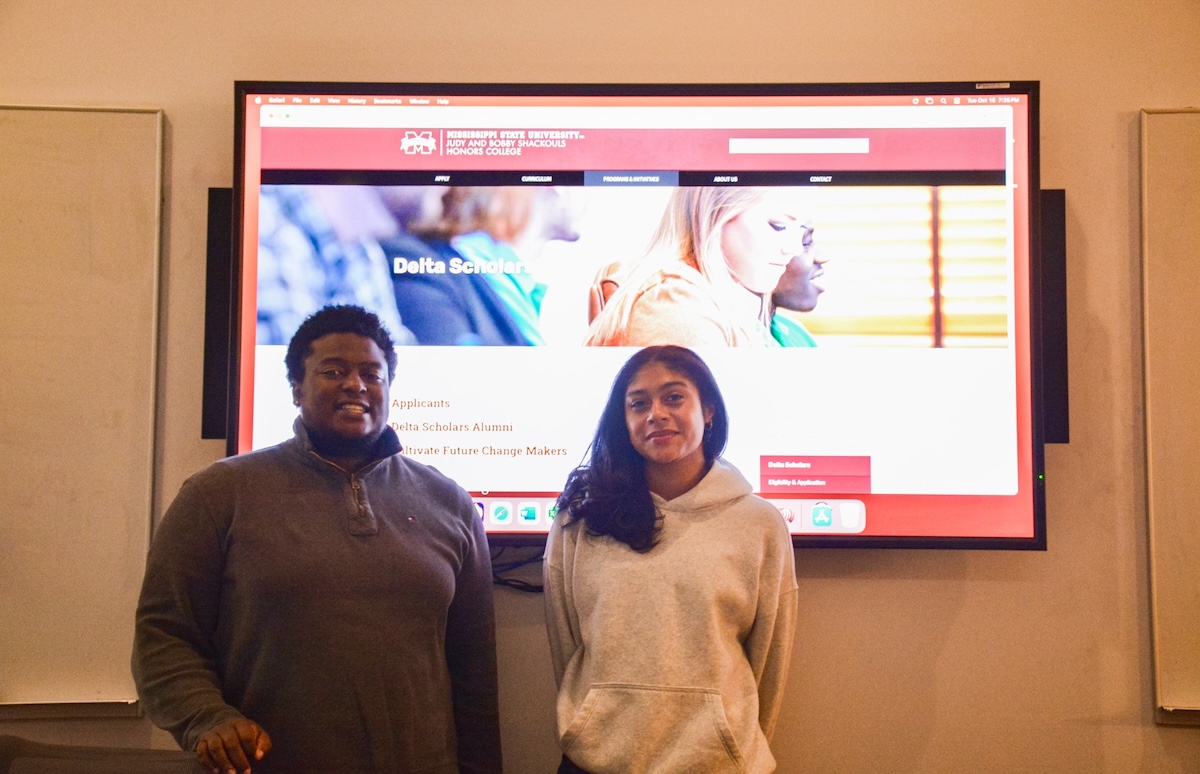Last year, Rutgers celebrated its first Delta Scholar, Casey Fortson (‘25, SAS/HC), in this nationally competitive program aimed at college sophomores and juniors who are committed to combating systemic injustices in the Mississippi Delta region and similar communities, particularly focusing on improving public health, legal, and economic support.
Students are nominated based on their academic achievements, public service, and most importantly, a desire to bring the world to a brighter future. These students develop a project with the goal of bringing positive change in their own communities built on what they learn while engaging with the Mississippi Delta communities. This culminates in attending a Mississippi-based summer program and a fall program at Harvard as part of their experience.
Fortson, now a senior in the Honors College at Rutgers University–New Brunswick pursuing a major in public health and a minor in political science, reflected on his experience as a Delta Scholar, which made him “recognize what true holistic leadership and public service looks like at the community level.”
His experience as a Delta Scholar largely influenced his decision to enroll in the University of Michigan HealthSpark program this past summer. This six-week public health program focuses on examining key issues in Southeast Michigan (including the city of Detroit) and is designed to expose students to careers in community and public health while increasing their knowledge base in health equity.
Fortson credits the Delta Scholars program with teaching him what community-based, on-the-ground public health work looks like.
But one of his biggest takeaways from the program was learning how, as an outsider, to “respectfully and holistically step into a new community without in any way making stakeholders feel uncomfortable.”
Rutgers’ second Delta Scholar, Andrea Rivera (‘26, SAS/HC), majoring in cell biology and neuroscience, is focused on addressing issues related to maternal health disparities in New Jersey.
As the treasurer for Network 8 Collective and a member of the American Medical Student Association, Peruvian American Student Association, and Latino Student Council, Rivera strives to lift up marginalized voices.
Rivera was inspired to focus on health disparities after hearing about the challenges that her mother faced during high-risk pregnancies with both her and her brother in a medical system that did not believe its patients. This inspired her to seek solutions, no matter how small.
Delta Scholars from across the country gathered for the 12-day trip this summer to the Delta region, where Rivera realized the extent of medical inequities in certain areas of the country and the need to make change.
“Travelling to Mississippi was definitely an eye-opener– it made me realize that although America is a major power, it still has places that are food and health deserts.”
Being selected as a Delta Scholar also opened a whole new world of academia for Rivera. During her trips to Mississippi State, Harvard, and Brandeis universities, Rivera spoke with other passionate students about each other’s research. She felt that they all truly cared about what the others had to say and learned from each other.
“Being a Delta Scholar gave me access to a lot of opportunities, especially during the two weeks in Mississippi,” said Rivera. “We heard lectures about people’s projects. We listened to where they failed, where they succeeded, and how they collected their information. I gained a lot of understanding that sometimes research can be harmful, even when you mean to do the right thing. That’s why I always said ‘Hey, listen, I’m not from the Mississippi region, and I don’t mean to take from you without giving back.’ So I listened to everyone and their stories.”
Rivera used what she learned in Mississippi to apply to her own project on similar challenges in New Jersey. She drew parallels between issues with medical mistrust, lack of access to specialized care, and income inequalities in both regions. Her project focused on steps that could be taken to begin to move toward larger solutions, such as spreading awareness about medical and financial resources to affected populations and opening pertinent conversations with insurance and healthcare professionals.
“We are suffering from health disparities that are affecting the quality of care that people of color receive,” said Rivera. She recounted visiting her friend’s grandmother and family in Mississippi. Over a large family dinner with them she had a chance to immerse herself in their life experiences by listening to their stories.
“I realized that people’s lives are behind the data that we have,” said Rivera. “It really humanizes the way we view our knowledge.”
She added that even if she only reduces disparities by just 1%, she knows that she will have made a difference to a real human being.
